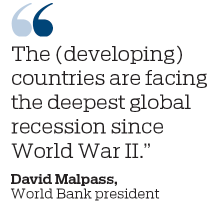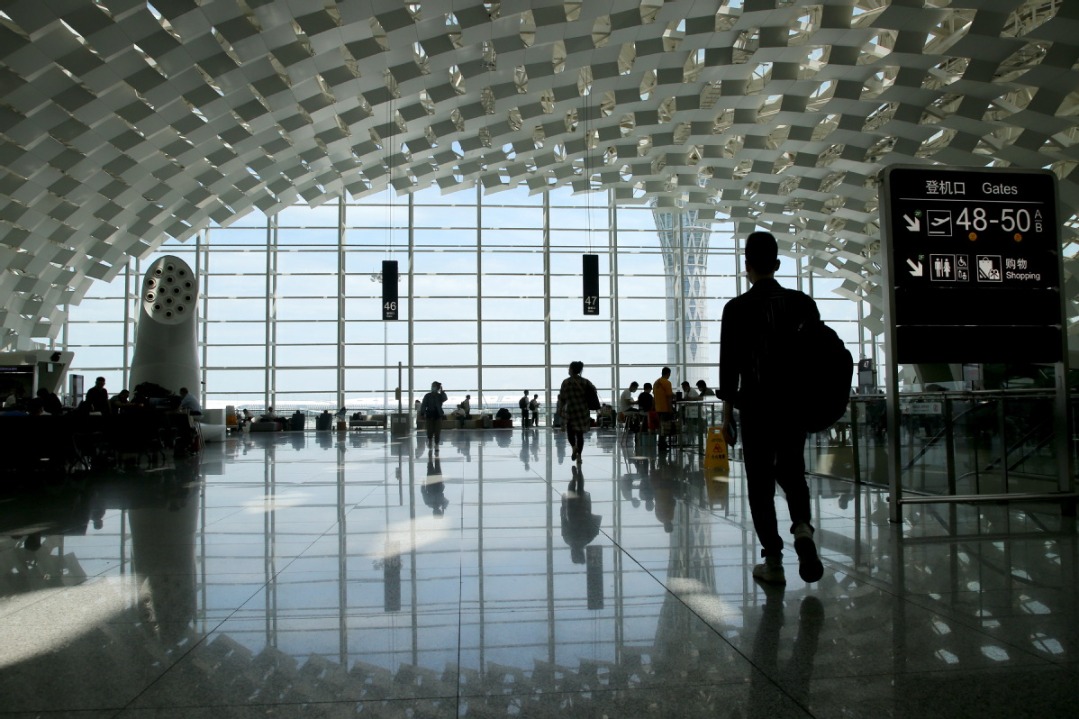Funding shortfall hinders pandemic response, World Bank chief warns

WASHINGTON-The global economy is facing "staggeringly large" losses and the recovery effort is hampered by a shortage of resources to make up for the damage caused by the coronavirus pandemic, World Bank President David Malpass warned on Tuesday.
While the Washington-based development lender has rushed out new programs to deploy $160 billion in funding to 100 countries in an effort to addresses the immediate emergency, the crisis will force developing nations to rethink the structure of their economies, Malpass said.
Initial estimates of $5 trillion in economic value destroyed by the COVID-19 measures likely falls far short of the actual damage that will be done by the efforts to contain the virus, he said.
The bank warned that the worldwide recession will drive more than 60 million people into extreme poverty, but Malpass said that grim projection likely will become much worse as the crisis progresses.
As he deals with the emergency, what keeps the World Bank chief up at night?
"Not enough resources," he said.
"I keep looking ... for others to add resources to the programs that we have up and running", among them direct cash payments to help the most vulnerable people in developing nations, Malpass added.
Long-lasting scars
The World Bank will release its updated Global Economic Prospects growth forecasts next week, but the scope and speed of the pandemic's impact almost defy description, and will leave long-lasting scars.
"The (developing) countries are facing the deepest global recession since World War II," Malpass said. "And that should keep lots of people up at night worrying about the consequences for the poor, for the vulnerable within those economies, for children, for healthcare workers, all facing unprecedented challenges."
While advanced economies will face the deepest downturns in percentage terms, "in many ways the more dangerous contractions are in the poorest countries, because they were closer to the poverty line before the pandemic", he said
The deterioration in extreme poverty in large part will depend on how soon advanced economies can reopen, since developing nations depend on markets in rich countries, Malpass said.
As countries struggle to fund urgent needs for medical equipment and treatments, as well as ensure food supplies, they are forced to drain resources intended for education and other critical investments.
And the absence of investments undermines potential growth during the post-pandemic recovery.
"The investment that you need for the future is being lost to fighting the crisis," Malpass said.
To blunt the long-term damaging effects beyond the immediate crisis, Malpass said governments will have to rethink and reshape their policies and "recognize that the global economy is going to be quite different in the future".
Agencies - Xinhua
Today's Top News
- Pragmatic discussions can illuminate the way to a brighter future for China-EU ties
- Ruling parties suffer major defeat in Japan's upper house election
- China, EU to hold 25th China-EU Summit in Beijing
- China's records growth in internet users and AI technology
- Japan's ruling coalition loses majority in both parliament houses
- Mega-hydro project launched in Xizang






























